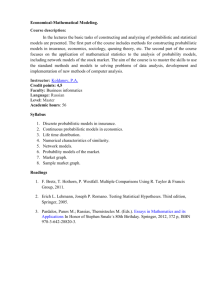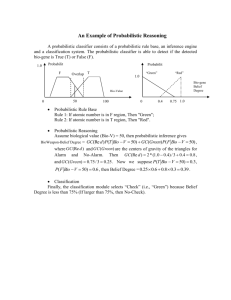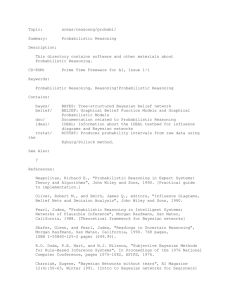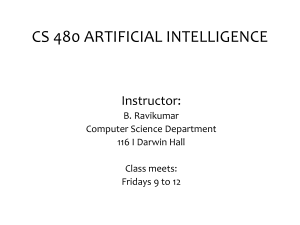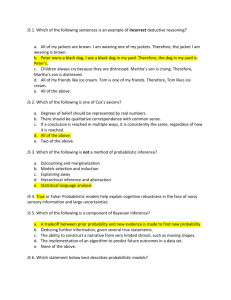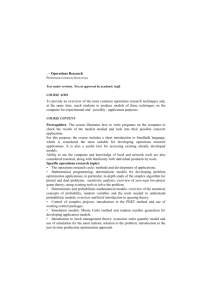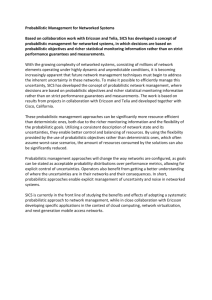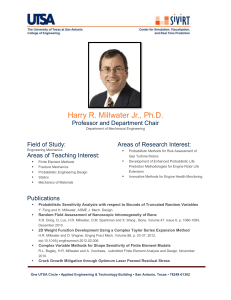Intelligence Assessment
advertisement
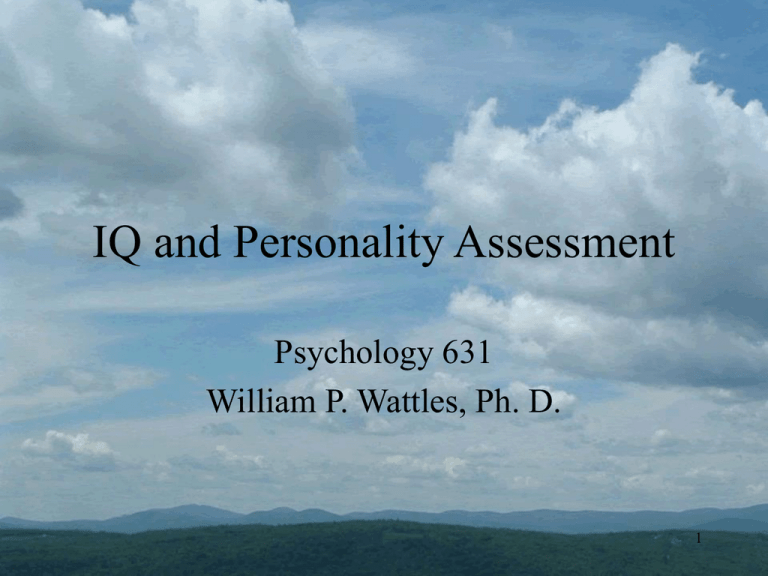
IQ and Personality Assessment Psychology 631 William P. Wattles, Ph. D. 1 Exam One • Why is the mean or average alone not enough information to describe a distribution? • The mean doesn’t tell us about the variability, that is how spread out the data are. 2 Exam One Make-up • Why do we need to calculate the standard deviation? • It tells us about the variability, that is how spread out the data are. 3 Exam Two • Jen reports means for different groups in her research. Should she also report the standard deviation? If so why? • Yes, It tells us about the variability, that is how spread out the data are. 4 5 6 • Intelligence is a very difficult concept to define. Intellect is described as “the power of the mind to think in a logical manner and acquire knowledge” 7 Wechsler Scales • Sound psychometrics – Long and extensive history of continued evaluation • Produce relevant information 8 IQ tests • Assess individual’s relative strengths and weaknesses • Compare with peers 9 Accuracy of Prediction • One of the main assets of intelligence tests is their accuracy in predicting future behavior. • Academic achievement • Occupational performance • Neuropsychology deficits 10 Correlation with IQ • • • • Success for Managers .53 Salespersons .61 Clerks .54 • For intellectually demanding jobs nearly half the variance can be explained by IQ 11 Personality variables and IQ • Poor scores on digit span, arithmetic and digit symbol suggest anxiety or ADHD. • High on Comprehension and Picture arrangement suggests good social judgment 12 Problems with IQ • Does not measure fixed innate ability • Does not measure all cognitive abilities • Easily misused • Highly personal 13 Creativity WAIS-3 Emphasizes • Convergent • Analytical • Scientific modes of thought 14 Prediction • Base line rates 15 • Predictor variable 16 Probabilistic Reasoning • “The Achilles’ heel of human cognition.” 17 Probabilistic Reasoning • “Men are taller than women” • “All men are taller than all women” 18 Probabilistic Reasoning • A probabilistic trend means that it is more likely than not but does not always hold true. 19 Probabilistic Reasoning • “The Land of sometimes and perhaps” 20 Probabilistic Reasoning • Knowledge does not have to be certain to be useful. • Individual cases cannot be predicted but trends can 21 Intelligence in assessment • Intelligence exists • Can improve understanding • It is part of the person. 22 Interpreting the WAIS-III • Full Scale IQ, the single most valid and reliable scale. • Percentile scores or intelligence classification may be harder to misuse. 23 Intelligence Classifications >129 120-129 110-119 90-109 80-89 70-79 <70 Higher extreme above average Well above average high average average low average well below average Lower extreme below average 24 Percentile Rank examples IQ 130 120 110 100 90 80 70 60 Percentile 98.0% 91.0% 75.0% 50.0% 27.0% 9.0% 2.0% 0.4% 25 • Work Satisfaction – Fit between ability and job 26 • Compatibility in relationships 27 • Leisure time pursuits 28 • Example of behavior when person is distracted from being conscious of being watched. 29 The End 30
